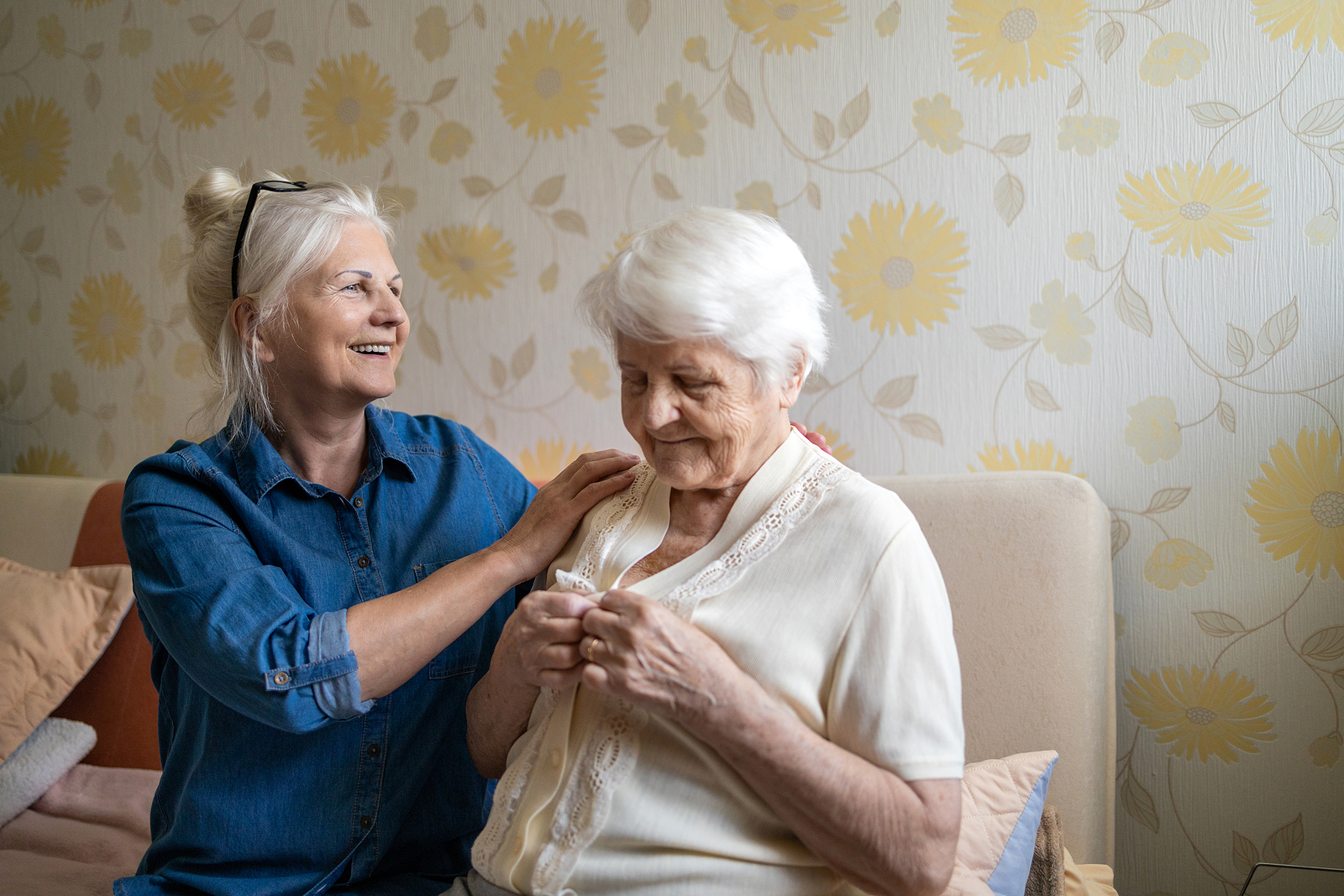
It can be confusing trying to figure out what type of home care is best for your senior parent as they get older. More seniors than ever before want to live in their own homes as they get older. But for family members, find the right type of support so that a senior parent can live safely at home can be tough.
Alzheimer’s home care is care designed specifically to meet the unique needs of seniors that have been diagnosed with Alzheimer’s, or any type of dementia. Alzheimer’s care at home is a great option if your senior parent wants to live in the home where all their memories are as they get older.
But Alzheimer’s care and home care are two different types of care. Even if your senior parent isn’t having severe symptoms of Alzheimer’s yet they should have Alzheimer’s care at home instead of home care.
That’s because Alzheimer’s home care is designed to help seniors at all stages of Alzheimer’s. A care provider that offers Alzheimer’s care can do things for your senior parent like:
Create a Daily Routine
Seniors with Alzheimer’s often feel less confused and anxious when they follow a regular routine. An Alzheimer's home care provider can help set up a daily schedule for meals, activities, and rest.
This consistency makes it easier for your parent to know what to expect each day. For example, having breakfast at the same time, followed by a short walk, or listening to music, or any activity that they enjoy, can help them feel more secure and relaxed.
Focus On Memory-Friendly Activities
Keeping the brain active is important for seniors with Alzheimer’s. A care provider can offer activities that match your parent’s abilities, such as puzzles, music, simple crafts, or looking through old photos.
These activities can help keep your senior parent’s mind engaged while also giving them a sense of accomplishment and joy. Playing their favorite songs or encouraging gentle movement can also improve their mood.
Assist with Personal Care in a Gentle Way
Many seniors with Alzheimer’s need help with daily tasks like bathing, dressing, and grooming. However, they may resist if they feel rushed or scared. A trained care provider knows how to make these tasks easier by using a calm voice, explaining each step, and allowing your parent to do as much as they can on their own. This helps maintain their dignity while ensuring they stay clean and comfortable.
Prevent Wandering and Keep Them Safe
Wandering is a common behavior in people with Alzheimer’s, and it can be dangerous if they leave home without supervision.
A care provider can help keep your parent safe by securing doors, using alarms if needed, and making sure they are in a safe environment. They can also provide gentle redirection if your parent becomes restless, offering a different activity or guiding them to a safe area.
Offer Emotional Support and Companionship
Seniors with Alzheimer’s can feel lonely, frustrated, or confused. A compassionate care provider provides comfort and reassurance. They listen, talk, and offer companionship to help your parent feel less isolated. Even simple things, like holding their hand, reading to them, or sitting together, can bring a sense of peace and connection.


